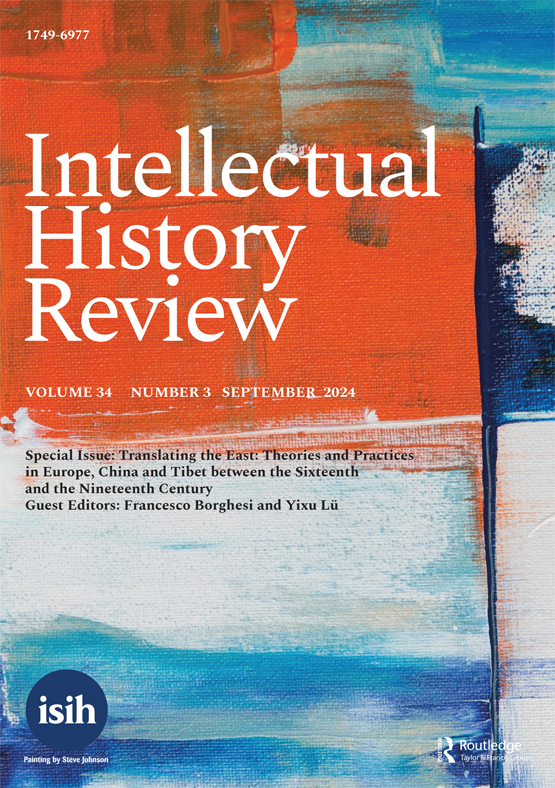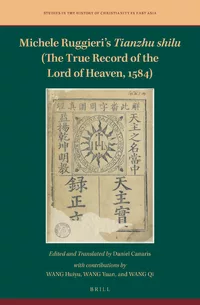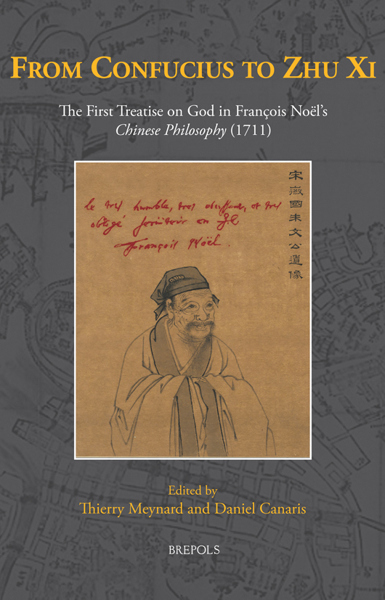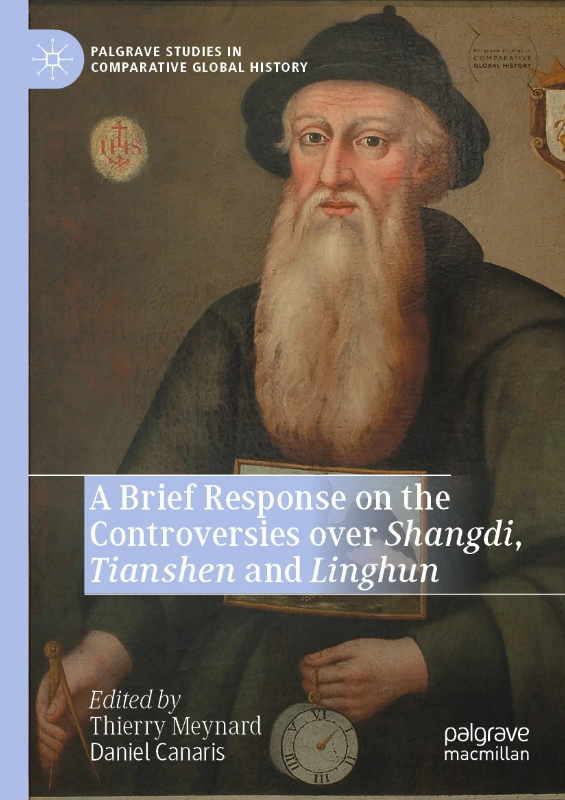
Translating the East: Theories and Practices in Europe, China and Tibet between the Sixteenth and the Nineteenth Century
Edited by Francesco Borghesi & Yixu Lü
Intellectual History Review, Volume 34, Issue 3 (2024). https://www.tandfonline.com/toc/rihr20/34/3
The essays collected in this special issue address a common concern related to the translatability of cultures and, in particular, the translatability of Chinese culture into the European culture. In so doing, they aim to shed new light in two different but related areas of research: the history of Sino-European intellectual encounters and the philological analysis of Jesuit translations.

Michele Ruggieri’s Tianzhu Shilu (The True Record of the Lord of Heaven, 1584)
Edited and translated by Daniel Canaris.
Studies in the History of Christianity in East Asia. Leiden: Brill, 2023. https://brill.com/view/title/60758.
The True Record of the Lord of Heaven (Tianzhu shilu, 1584) by the Jesuit missionary Michele Ruggieri was the first Chinese-language work ever published by a European. Despite being published only a few years after Ruggieri started learning Chinese, it evinced sophisticated strategies to accommodate Christianity to the Chinese context and was a pioneering work in Sino-Western exchange. This book features a critical edition of the Chinese and Latin texts, which are both translated into English for the first time. An introduction, biography, and rich annotations are provided to situate this text in its cultural and intellectual context.

From Confucius to Zhu Xi
The First Treatise on God in François Noël’s Chinese Philosophy (1711)
Edited by Thierry Meynard and Daniel Canaris.
Global Perspectives on Medieval and Early Modern Historiography. Turnhout: Brepols, 2023. https://www.brepols.net/products/IS-9782503601793-1.
On 25 September 1710, Pope Clement XI finally promulgated the 1704 decree Cum Deus optimus, which condemned the toleration of certain Confucian rituals among Chinese Catholic converts and the use of the Chinese terms tian and Shangdi to refer to the Christian God. This papal decision antagonised the Kangxi Emperor and devastated the Jesuit China mission. Although the Jesuits were prohibited from publicly refuting the decree, the Flemish Jesuit François Noël sought to defend the Jesuit position by publishing his voluminous scholarship on the Chinese classics. Among other works, in 1711 Noël published two seminal contributions to the history of Sinology: the Sinensis imperii libri classici sex or Libri sex, and the Philosophia Sinica, a sophisticated treatment of Chinese metaphysics, ritual, and ethics. While the Libri sex achieved some degree of influence in the Enlightenment through the French translation of the French Jesuit historian Du Halde and the writings of the philosopher Christian Wolff, the Philosophia Sinica was actively suppressed by the Superior-General of the Jesuit order. Yet it is in this latter work where the full breadth of Noël’s originality and intellectual contribution can be found. Noël reinterprets the Jesuits’ position through the lens of Neo-Confucianism, integrating concepts such as li, taiji, yin, and yang in his reading of Chinese philosophy. With contributions from Sinologists and intellectual historians, this book offers the first systematic study of this pioneering work..

A Brief Response on the Controversies over Shangdi, Tianshen and Linghun
Edited by Thierry Meynard and Daniel Canaris.
Palgrave Studies in Comparative Global History. Singapore: Palgrave Macmillan, 2021. https://link.springer.com/book/10.1007/978-981-16-0451-5.
This book presents the first detailed study of Longobardo’s Brief Response, a controversial and explosive report that changed the history of the Jesuit China mission. It offers unique insights into early modern debates on the translatability of thought, which will be of interest to scholars of early modern European history and Sinologists alike. It also features extensive notes detailing Longobardo’s Sino-Western intellectual context and clarifying how later missionaries manipulated his treatise to attack the Jesuits’ position in the Rites Controversy.

